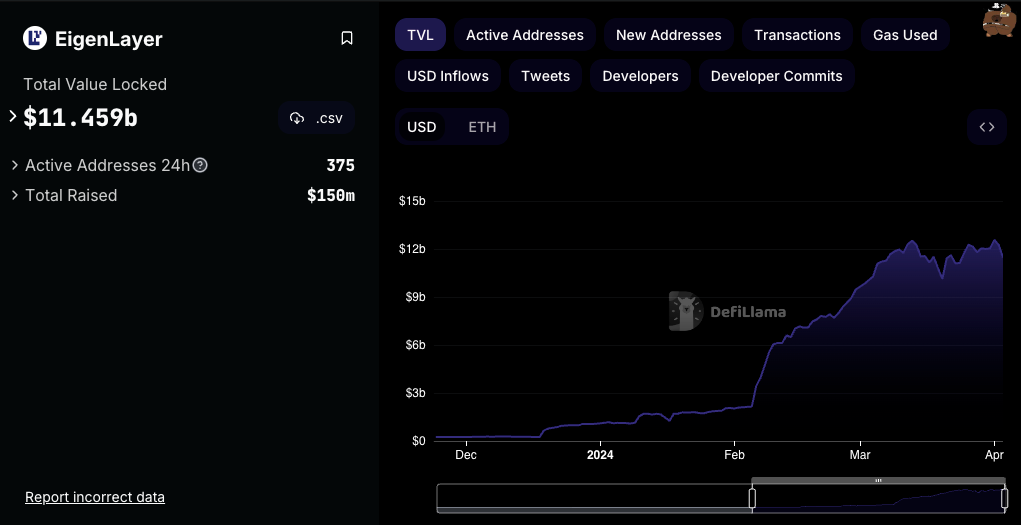
Ethereum restaking could form the ‘bedrock’ for a wide range of new decentralized applications on the blockchain. However, it could also introduce several new hidden risks, says Coinbase. In a research report released on April 2, analysts David Han and David Duong from Coinbase outlined various risks associated with restaking and issuing liquid restaking tokens (LRTs).
Hidden Risks in Ethereum Restaking Protocol
The Ethereum restaking protocol Eigenlayer enables users to garner additional LRTs rewards by securing actively validated services (AVS) through staking derivative tokens. These tokens are allocated to individuals who have previously staked Ether via liquid staking protocols such as Lido (LDO).
At the protocol’s inception, analysts noted that the restaking process seemed “fairly straightforward.” However, EigenLayer introduces a feature allowing staked tokens committed to one AVS to be restated to another, potentially amplifying earnings and risks. It channels the same funds to similar validators to yield higher returns.
Furthermore, including LRTs might lead retakers towards providers offering higher yields, consequently elevating the risk profile, albeit covertly, cautioning the analysts. Analysts cautioned that LRT providers and decentralized autonomous organizations (DAOs) could amplify potential risks. They might do so by incentivizing multiple retakes to maintain competitiveness.
Potential Impacts on DeFi Landscape
Despite these concerns, the analysts expressed optimism about EigenLayer’s restaking protocol. They anticipate it to serve as a foundational element for a wide array of new services and middleware on Ethereum.
Han and Duong expect the staked ETH to grow over the long term. However, Eigenlayer’s Total Value Locked (TVL) might experience a reasonable short-term decline. This could happen when farming ends, or early AVS rewards fall below expectations.
On March 6, Eigenlayer flipped lending giant Aave to become the second-largest DeFi protocol. It commanded $11.5 billion in total value locked (TVL) per DefiLlama, second only to Ethereum liquid staking protocol Lido.

The market enthusiasm for restaking has already been controversial, and Ethereum developers warn it could create a concerning amount of leverage. Restaking proponents, meanwhile, say it offers further rewards to those who have already staked their ETH.
Related Reading | Tether Achieves Top Security Compliance with SOC 2 Audit Completion








